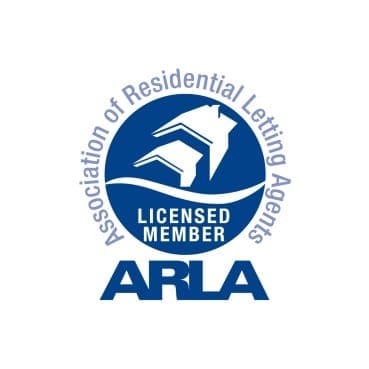Contact our offices
Main office
COLBURN
5 & 6 BAILEY COURT
COLBURN BUSINESS PARK
RICHMOND
NORTH YORKSHIRE
DL9 4QL
Estate Agency Offices are located in
BARNARD CASTLE, BOROUGHBRIDGE & RICHMOND
Residential Management Team
Our Offices
- Alnwick
01665 568310
Email Officealnwick@gscgrays.co.uk - Barnard Castle
01833 637000
Email Officebarnardcastle@gscgrays.co.uk - Boroughbridge
01423 590500
Email Officeboroughbridge@gscgrays.co.uk - Chester-Le-Street
0191 3039540
Email Officechester-le-street@gscgrays.co.uk - Colburn
01748 897630
Email Officecolburn@gscgrays.co.uk - Driffield
01377 337180
Email Officedriffield@gscgrays.co.uk - Hamsterley
01388 487000
Email Officehamsterley@gscgrays.co.uk - Hexham
01434 611565
Email Officehexham@gscgrays.co.uk - Kirkby Lonsdale
01524 880320
Email Officekirkbylonsdale@gscgrays.co.uk - Penrith
01768 597005
Email Officepenrith@gscgrays.co.uk

Landlords – Points To Be Aware Of:
1. Deposits must be placed in a Tenancy Deposit Scheme
Any deposit funds must be placed in one of the three designated government backed Tenancy Deposit Schemes (TDS) within 30 working days of a Tenancy commencing/the deposit being received. Failure to do so is a criminal act and may make the Landlord liable for a fine at court of three times the deposit amount being payable from him/her to the tenants. Putting the money into a separate bank account doesn’t qualify. Failure to place a deposit fund within a Deposit Scheme will invalidate any Section 21 Notices the Landlord is required to serve, should they wish to regain possession of their property.
2. Tenants can report poor housing
Tenants can report poor housing (e.g. no running water, excessive mould etc) to their Local Authority. Under the Landlord and Tenant Act 1985, Section 11, the Landlord has a legal duty to ensure their property is kept in repair and in working order unless damage is caused through Tenant negligence. If a Landlord does not carry out repairs under Section 11 of the act within a reasonable timeframe, in certain cases the Tenant has the right to withhold the rent until work has been completed. Part 1 of the Housing Act 2004 risk assessment procedure – The Housing Health and Safety Ratings System (HHSRS) assesses the risks to Health and Safety within Residential Properties and Local Authorities have the power to enforce action upon the Landlord or Letting Agent to ensure the property is returned to a satisfactory condition.
3. Tenants are expected to keep a rented property in a ‘tenant-like manner’
Tenants are expected to look after their rented property and carry out small jobs around the property – subject to Health and Safety considerations. A Landlord is not expected to repair or maintain items that a tenant has broken through negligence or misuse.
Warren Vs Keen 1953
“The tenant must take proper care of the premises. He must, if going away for the winter, turn off the water and empty the boiler; he must clean the chimneys when necessary and also the windows; he must mend the electric light when it fuses; he must unstop the sink when it is blocked by his waste. In short, he must do the little jobs around the place which a reasonable tenant would do. In addition, he must not, of course, damage the house wilfully or negligently… but, apart from such things, if the house falls into disrepair through fair wear and tear or lapse of time or for any reason not caused by him, the tenant is not liable to repair it”.
4. Tax evasion is illegal
Landlords who earn an income from their rental property must generally complete a Tax Return. Letting property is, in effect, running a small business and should be treated as such. HM Revenue & Customs can impose hefty fines on anyone discovered to be evading tax. Generally, the interest part of a buy to let mortgage can be off-set against the tax bill for the property along with various other concessions, however, following the recent budget, this is set to change from April 2017. Check the HMRC website for full details.
5. Smoke Alarms and Carbon Monoxide Alarms
From October 2015 all Private Rented properties must adhere to the changes outlined within The Deregulation Act 2015. Working smoke alarms are to be fitted to each elevation of a Private Rented Property and carbon monoxide alarms are to be fitted in rooms that are classed as ‘high risk’. Further information regarding the changes can be found on the following link;
http://www.gscgrays.co.uk/2015/05/08/tenants-safer-under-new-government-measures/
6. Legionnaires Disease
All residential properties which are rented out must now have a risk assessment undertaken to determine the risk of Legionella, which then allows landlords to implement a suitable control scheme. Further information regarding the changes can be found on the following link;
7. Insurance
Landlord insurance is a growing area, with an increasing number of specialist policies covering a range of products from building insurance, contents, legal protection, rent loss and appliances. Having the correct insurance is vital and not being adequately protected could be disastrous.
8. Safety Requirements
Before letting out a property, a Landlord should ensure that the property meets all current safety regulations, these include
- Gas Safety Regulations 1998 – A mandatory check to ensure the property and gas items meet current regulations is required annually.
- Electrical Equipment (Safety) Regulations 1994 – Not a mandatory requirement to have electrical equipment checked annually however it is recommended as ‘best practice’. Should a tenant come to harm through faulty electrics within a rental property, the Landlord and Letting Agent could be held liable under the Defective Premises Act 1972.
- Plugs and Sockets Regulations 1994
- Furniture and Furnishings (Fire) (Safety) (Amendment) Regulation 1993
- The Energy Efficiency Regulations 2015 – From 1st April 2016, a Tenant will be allowed to reasonably ask for a relevant energy efficiency improvement. From 1st April 2018, all rented property (both domestic and non-domestic) which is to have a new tenancy, must have an EPC rating of at least ‘’E’’. For further information, please follow the below link: http://www.legislation.gov.uk/uksi/2015/962/contents/made
9. Check-ins and check-outs
Conducting a proper check-in and check-out is essential. These should include a full inventory check, condition report check, and a full set of dated digital photographs. If the Landlord and the Tenant can’t agree on what the Tenant may be liable for at the end of the Tenancy then the check-in and check-out evidence is the only way the Landlord can prove his case. In contested cases, TDS adjudicators start from a position of ‘the money belongs to the tenant’, and it’s up to the Landlord to prove otherwise.
10. Ignorance is no excuse
It’s important for Landlords to keep up-to-date with letting rules and regulations. A person who is unaware of a law may not escape liability for violating that law merely because he or she was unaware of its content.
11. Construction (Design and Management) Regulations 2015
The new Construction (Design & Management) Regulations 2015 came into force on 6th April 2015 but are still subject to Parliamentary Approval and therefore subject to change.
The Regulations apply to all construction work, which is defined as “the carrying out of any building, civil engineering or engineering construction work”. Construction includes the following work in relation to a “structure”:-
Repair, Alteration and Conversion, Fitting out, Redecoration, Maintenance, Preparation work (site clearance, excavation, etc.), Installation, maintenance, repair and removal of mechanical, electrical, gas, telecommunications or similar services which are normally fixed within or to a structure, Assembly of on-site of pre-fabricated elements to form a structure and subsequently disassembly and removal.
Existing projects may continue as they are until 6th October 2015, allowing the various changes of CDM 2015 to be implemented. However, CDM 2015 introduced significant changes to the earlier Regulations and they will impact NOW on all residential management, estate and farm building projects.
It is important to note that a Construction Phase Plan is mandatory for every project and clients must ensure that a plan is in place before any works commence, including setting up the construction site.
What is a Construction Phase Plan (CPP)?
The CPP is a document that provides background information, outlines the principal concerns in the task and identifies what action is required. It is different from a Risk Assessment (which is still required). Whilst this must be produced by the Principal Contractor, the client has a duty to ensure that it is produced. The client must not allow work on site to proceed, unless a Construction Phase Plan has been prepared, at least for the early stages of the works, and arrangements for the development of the rest of the plan has been established.
Here at GSC Grays we are licenced members of ARLA – Association of Residential Letting Agents. We are regulated by ARLA and follow a strict code of conduct. We can provide you with professional, up to date advice and guidance, giving you peace of mind that your property is managed effectively. For further information and advice, please contact:
[team-member name=”Lucinda Riddell”]
[team-member name=”Sean Skelton”]

GSC Grays News
A Northumberland Estate of significant scale with sporting and environmental appeal goes on the market for £8,000,000
Read more








